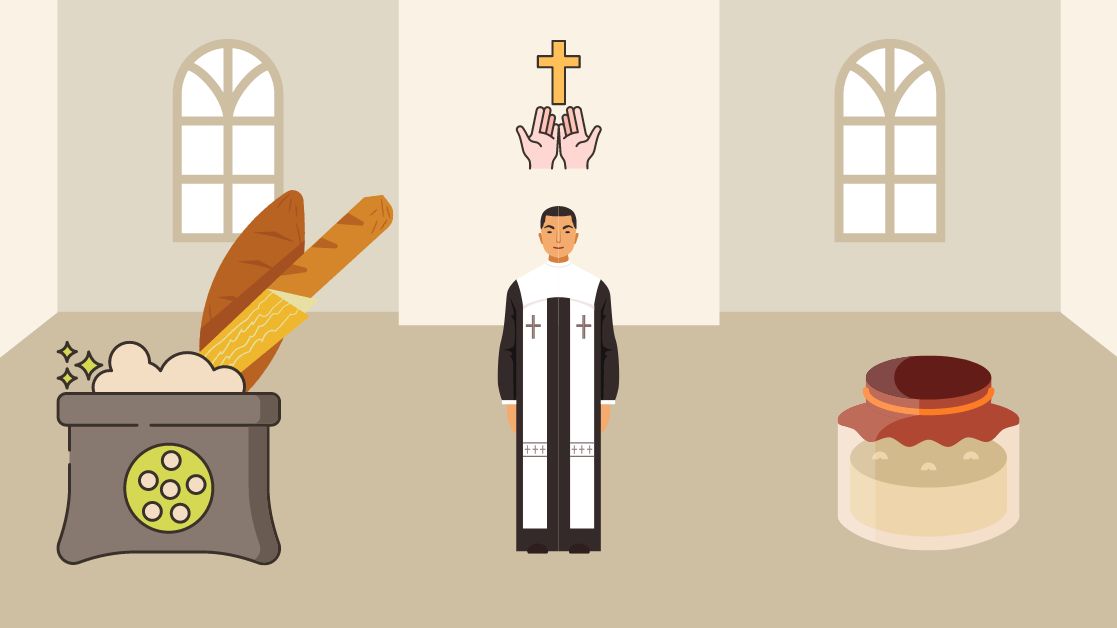Whenever the word “leaven” or “yeast” appears in the Bible, it has always been a metaphor for sin. “Don’t you realize that the entire batch of dough is infused with a little yeast? “, Paul wrote in a letter to the Corinthians (1 Corinthians 5:6–8). Jesus used the analogy of fermenting yeast to show how sin leads to more sins.
Since yeast is a bacterial fungus or mold, it is a suitable emblem for sin. Just like sin grows in a person’s life, it expands in bread dough.
The bread is soured by yeast or leaven. Natural sweeteners like honey eventually ferment and become sour. Just like a little sin can sour a whole life, a little yeast will influence the entire loaf. Unfortunately, a lot of people don’t seem to understand how sin multiplies itself.
What Does the Bible Say About Yeast?
In Genesis 19:3, the word “unleavened” first appears. It is used 51 times in the Old Testament and nine times in the New Testament.
God instructed Moses and Aaron to command Israel to observe Passover feasts every year. After Passover, there was a holiday known as the “Feast of Unleavened Bread.” It went on for seven days.
They received the instruction to take out all leaven from their dwellings. For the course of the week, they were also not allowed to eat any leavened bread.
The “unleavened bread” also points to Jesus, as does the entirety of the Old Testament. The New Testament uses Jesus’ own phrase, “Bread of Life,” to describe Himself (Jn 6:22-59).
Of course, He was also without sin (1 John 3:5, 2 Corinthians 5:21, Heb 4:15, 1 Pet 2:22). The Bible frequently compares leaven to sin, hence “unleavened bread” represented bread (Jesus) without sin in it.
A “blood sacrifice” was also not to be offered with leavened bread (Ex 23:18), as the blood in the Old Testament also represented Jesus (Heb 9:11–28; Heb 10:11–25).
However, it is important to note that leaven was required for both a wave offering (Lev 23:17) and a peace offering (Lev 7:13).
Why Is Yeast a Sin Symbol?
Let’s examine another yeast-related parable. Let’s begin with Luke 12:1. Jesus warned his disciples about the Pharisees’ hypocritical yeast. He cautioned them that they were pretenders. Although they appeared to be devout on the outside, they showed little consideration for the mental or physical health of the populace.
They were infecting people’s minds with their “yeast” of corrupt moral influence.
In Matthew 16, Jesus also mentioned the Sadducees’ yeast. He corrects them and departs. They had come to challenge Jesus and demand a “sign.” He warns his followers to avoid the Sadducees’ brew.
Once again, the prospect of disseminating their incorrect beliefs (denying the resurrection and the immortality of the soul, to name a couple) could deter many people from accepting Christ as their Savior.
Unleavened Bread Meaning
The Feast of Unleavened Bread serves as a reminder of our way of life.
We must first acknowledge the sin in our lives. That requires reflection. It is our responsibility to actively look for sin as it infiltrates our lives. Look into every crevice of our hearts, and remove it. When temptation arises, resist it. Before it may develop into sin, put a rapid end to it. Find the prayer or course of action that helps you resist the temptation.
Finally, when we sin, we should repent right away. Spend some time with God and reflect on everything that He has done for you.
Bottom Line
In the Bible, yeast has been used as a representation of sin. Nevertheless, there are sections where the word “yeast” is used favorably. Yeast was positively utilized as a sign of growth in Matthew 13:33.
Nonetheless, this symbolism does not mean that Christians are not allowed to eat food with yeast or leaven. It is only used to describe and give meaning to how we should live our lives as believers.
We’ll never be faultless, but we can be kept in check if we have a healthy regard for how cunning sin is. Remember that we got the Holy Spirit and forgiveness of sins when we converted to Christianity. He is a part of us and will support us in leading moral lives.




